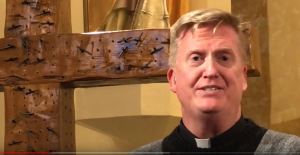
Fr. Michael Gurnick, Administrator, St. Malachi Parish
Dear Parishioners and Friends,
November invites us to exercise a sacred duty – and privilege – as we pray for the Souls of the Faithful Departed. The Church acknowledges that we have a limited understanding of the details concerning Purgatory. However, what has been revealed is very clear: “All who die in God’s grace and friendship, but still imperfectly purified, are indeed assured of their eternal salvation, but after death they undergo purification, so as to achieve the holiness necessary to enter the joy of heaven. The Church gives the name Purgatory to this final purification of the elect which is entirely different from the punishment of the damned (Catechism of the Catholic Church, 1030-1031).” One key biblical source for understanding purgatory is the Book of Maccabees, one of the books that were omitted by Luther and other Protestant theologians at the time of the Reformation. Maccabees 12:43-6 offers scriptural basis for purgatory, “[b]ut if he did this with a view to the splendid reward that awaits those who had gone to rest in godliness, it was a holy and pious thought. Thus he made atonement for the dead that they might be absolved from their sin.” It is important to remember that we have been given this sacred duty to offer prayers for those who have died. We especially do this in the celebration of the Eucharist. Just listen to the many times the prayers make reference to those who have gone before us. And notice how many times this is connected to the Blessed Mother, Saint Joseph and the entire Communion of Saints. Whether at Mass, while praying the Rosary or visiting a local cemetery, may we remember the Dead during this final month of our liturgical calendar that ends with the Solemnity of Christ, Sovereign King of the Universe.
In the peace of Our Risen Lord,
Fr. Gurnick